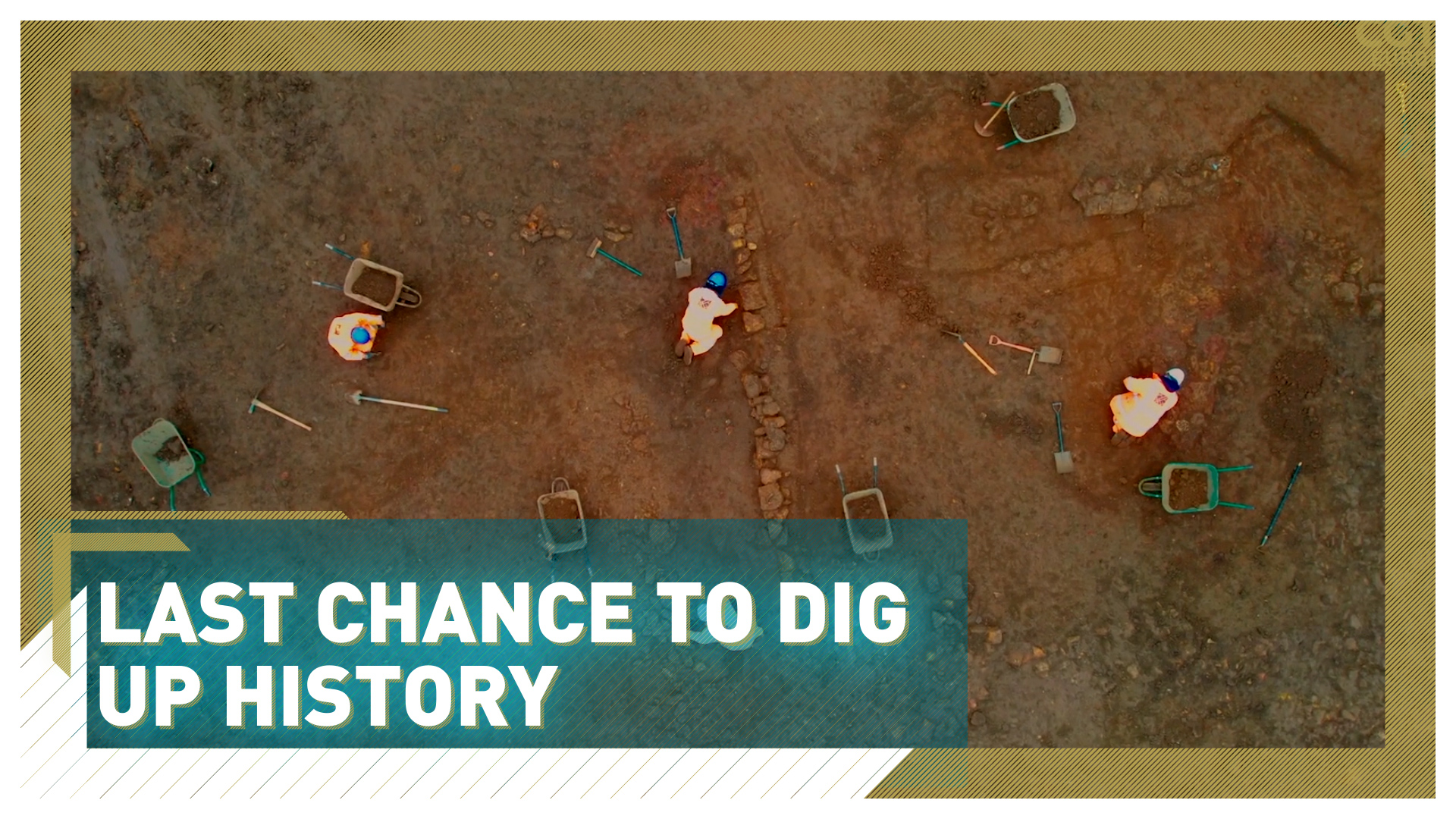02:59

Buried beneath England's rolling Cotswold hills lie thousands of years of history. The development of a new high-speed rail line, known as HS2, has brought the opportunity to uncover them.
For the past year, around 80 archeologists have been excavating the site of a Roman settlement in Northamptonshire in England's East Midlands on behalf of the HS2 rail project. Site Manager James West and his team have been astonished by the discoveries.
"It's one of the best sites I've ever worked on, both in scale and quality of finds and remains that have come out of the ground," West tells CGTN. The team has unearthed Roman coins, pottery and even an iron shackle. The numerous stone buildings and roads found beneath the surface paint a detailed and fascinating picture of a past life.
"This is an important site for the HS2 project, because it answers that question about what is going on between the Iron Age and the Roman period," explains West. "In the Roman area, we've areas of industry – kilns that have got materials in, that are either for bread-making, for making pottery, or for making iron work.
"We've got areas where the roads are, bringing in materials from the surrounding landscapes. So, there will be farms around it that will be bringing in produce to be used for selling to the settlement to support it."

Drone shots show the extent of the archeology at the HS2 site. /Middleton Mann/HS2 Ltd
Drone shots show the extent of the archeology at the HS2 site. /Middleton Mann/HS2 Ltd
The site, which began as an Iron Age settlement before the Romans arrived, has been known about since the 1830s – but this was the first chance to dig extensively.
"HS2 has given the opportunity to look at it on a large scale," says Michael Fulford, a professor of archeology at the University of Reading. "It's adding a new dimension to the understanding of the rural landscape of Roman Britain.
"Historically, our knowledge of Roman Britain has been predominantly on the houses of aristocracy – the villas, the wealthy, the landowners of Roman Britain. This is giving insight into the people who actually worked the land and brought the wealth to those villa owners."
READ MORE
'When surgery was without painkillers
Boris Johnson's partygate explained.
What is the Year of the Tiger?
HS2 archeologists have excavated over 100 sites along the line of the new rail route. But not all agree about the project. Wendy Morrison, an archaeologist leading the Beacons of the Past project, which discovers and documents Iron Age hill forts in the Chiltern Hills, is opposed to the new HS2 rail route.
"The level of destruction is total and complete and irreconcilable. Archaeology is a non-renewable resource," says Morrison. "That sort of archeological investigation that is there to mitigate and fulfill the planning conditions and only a small percentage of the actual archaeological resource is being looked at. And then the rest is being bulldozed away."

Archeologists are split over whether HS2 is a threat – but for now, it's an opportunity. /Middleton Mann/HS2 Ltd
Archeologists are split over whether HS2 is a threat – but for now, it's an opportunity. /Middleton Mann/HS2 Ltd
The Chiltern Hills are also rich in history – in another HS2-funded dig, rare Roman statues were unearthed beneath a Norman church. But with the dig complete, the area is now flattened, in preparation for the construction phase. Morrison says that while she welcomes the finds, she would prefer to see important sites preserved.
"When we get to the end of, say, five years' time from now, new questions may arise that could only be answered by going back to the site and doing further investigation," she says. "Those sites will now be inaccessible and completely and utterly destroyed."
But other archeologists argue that HS2 has proved beneficial overall. "On the one hand, one would love to see sites preserved forever," says archaeology professor Fulford. "On the other hand, if they have to be preserved for the wider public good, then it's good that they're excavated and recorded as professionally as possible."

